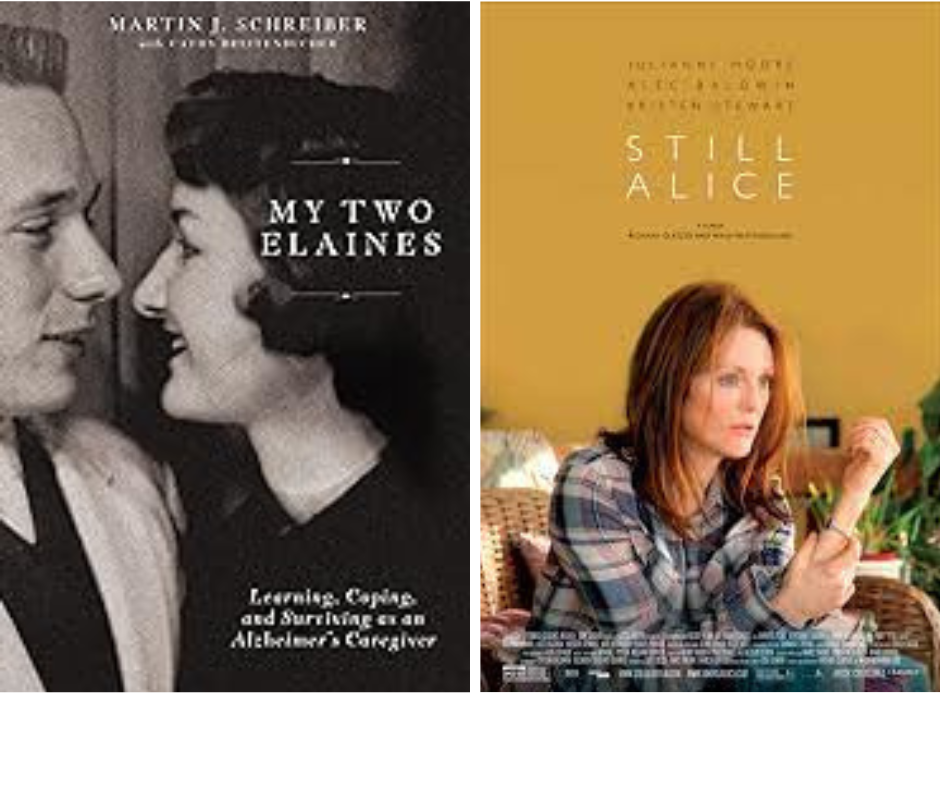The lifetime risk for Alzheimer’s in women at age 45 is twice as high for women as it is for men. Living with Alzheimer’s is never easy, but women face unique challenges due to their age and societal roles.
Women in their 40s or 50s are often at the peak of their careers. Because of this, early-onset Alzheimer’s in women is often mistaken for stress, depression, or menopause, leading to delays in diagnosis and treatment. Research suggests hormonal changes associated with menopause may accelerate cognitive decline in women with early-onset Alzheimer’s.
Women are traditionally the primary caregivers in families. An early-onset diagnosis may mean they need to care for their own children while simultaneously coping with their declining cognitive abilities. Early-onset Alzheimer’s robs women of their independence, sense of self, and the ability to fulfill their roles as mothers, partners, and professionals, leading to a loss of self-esteem.
There are several books and films that explore the themes of the personal journey of a woman navigating the challenges of early-onset Alzheimer’s, highlighting the impact on identity, relationships, and career. My Two Elaines: Learning, Coping, and Surviving as an Alzheimer’s Caregiver and Still Alice do just that. If you or a woman in your life is struggling with this disease, you may be interested in these titles.
My Two Elaines: Learning, Coping, and Surviving as an Alzheimer’s Caregiver
In My Two Elaines author Marty Schreiber, former governor of Wisconsin, watches his beloved wife, Elaine, gradually transform from the woman he fell in love with in high school, and who diligently supported his political career, to the Elaine who knows she is declining and can’t remember how to cook a meal, and finally to the Elaine who no longer recognizes Marty or their children.
One part love story, one part practical advice, this compelling book includes several unique elements:
- Excerpts from Elaine’s journal, recounting her thoughts, concerns, and frustrations as the disease progresses.
- A recurring feature called “What I Wish I’d Known,” which provides helpful takeaways for caregivers based on Marty’s observations about what he wishes he’d known sooner and done differently.
- A Q&A between Marty and neuropsychologist Dr. Michelle Braun, to equip caregivers with the right questions to ask and empower them to advocate for their loved ones and their own needs.
Beyond sincere, practical advice, My Two Elaines gives the reader permission to feel the full spectrum of emotions, including humor, even in the face of this relentless illness. And the book speaks to anyone touched by this disease–spouse, child, friend, or family member.
Still Alice
Still Alice is a 2014 drama based on the 2007 novel of the same name by Lisa Genova. It stars Julianne Moore as Alice Howland, a renowned linguistics professor who is diagnosed with early-onset Alzheimer’s disease. The film follows Alice’s journey as she grapples with the progressive loss of her memory, identity, and independence.
The film explores the emotional and psychological impact of Alzheimer’s on Alice and her family, including her husband John (Alec Baldwin) and her children Lydia (Kristen Stewart), Anna (Kate Bosworth), and Tom (Hunter Parrish). It delves into the challenges of caregiving, the complexities of family relationships, and the importance of love and support in the face of adversity.
Still Alice received critical acclaim, particularly for Julianne Moore’s performance, which earned her an Academy Award for Best Actress. The film is a poignant and moving portrayal of a woman’s struggle with a devastating disease and the resilience of the human spirit.
Any form of Alzheimer’s is a frightening diagnosis. At Gentle Shepherd Care we have created an end-to-end program that supports those facing this journey, both the family and their diagnosed loved one. Dementia takes many other forms as well and is not always Alzheimer’s. We are here to help you navigate care, decisions, and the roadmap. We will help you with Lifecare planning to make sure that you live your life on your terms and make your decisions known while you are still able to do so. We also have a coaching program to teach you the things you need to know for caregiving. We provide full-service care management and in-home caregiving assistance. You have a professional partner you can count on for any questions, challenges, or care needs.
